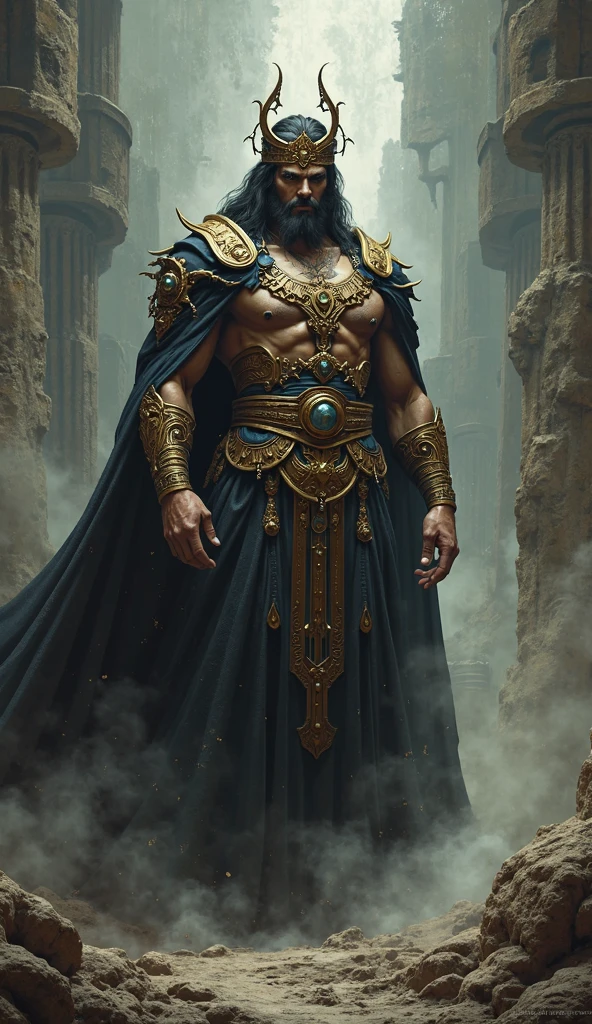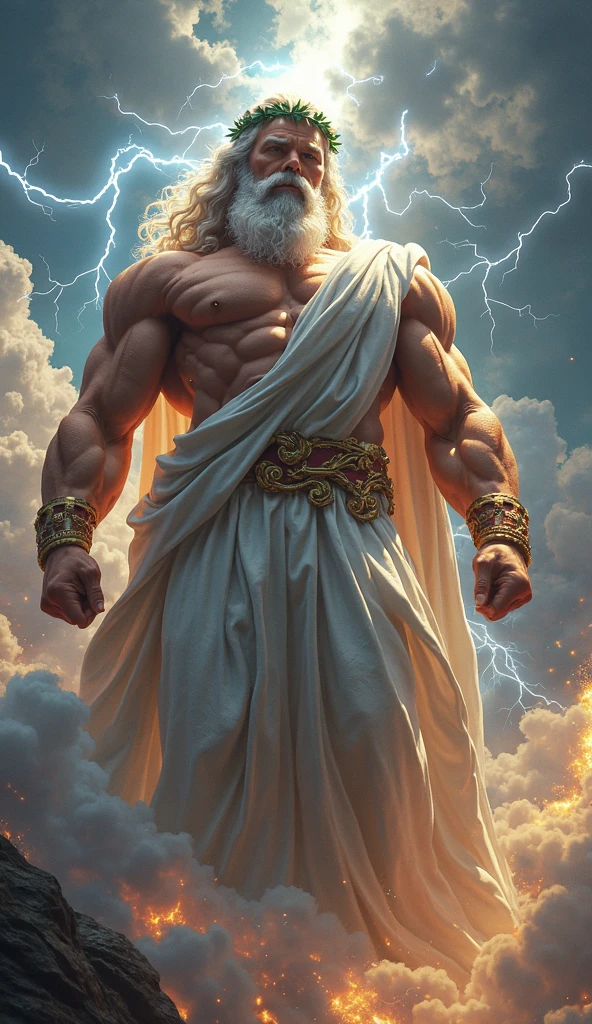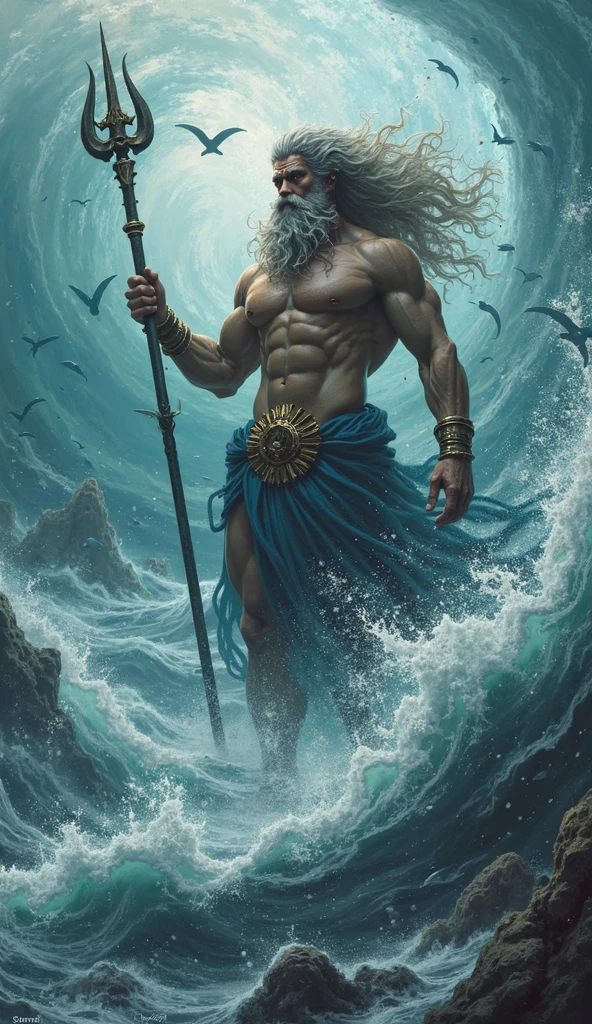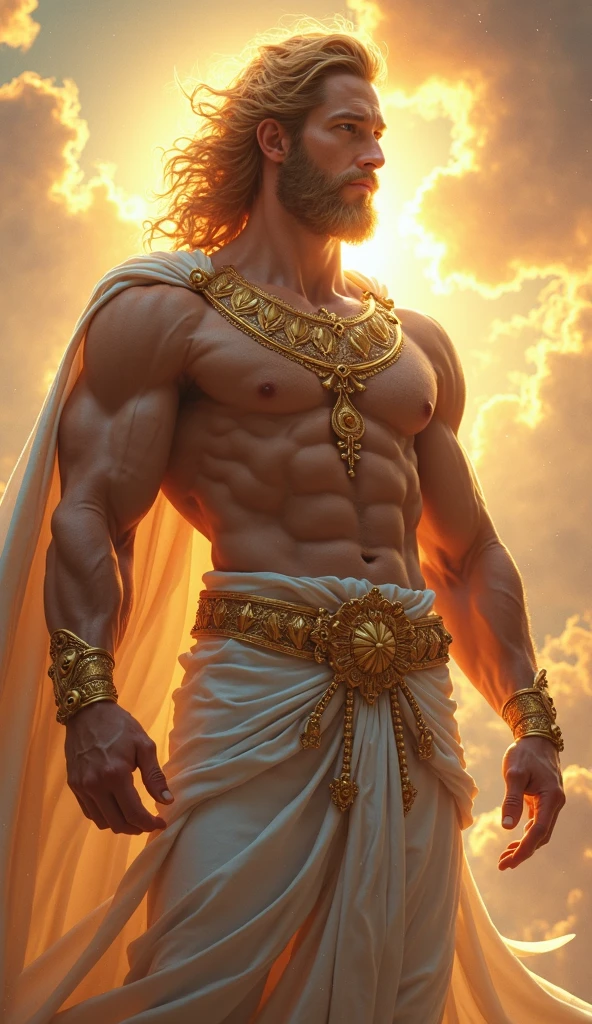The Paradox of Achilles: Heroism and Humanity in Homer’s Iliad
In the pantheon of Greek mythology, few figures loom as large—or as contradictory—as Achilles, the legendary warrior at the heart of Homer’s Iliad. A demigod with the rage of a tempest and the vulnerability of a mortal, Achilles embodies the eternal clash between glory and humanity. His story isn’t just a relic of ancient epics; it’s a psychological blueprint for understanding ambition, grief, and the cost of greatness. Let’s peel back the layers of this mythic icon and explore why his 3,000-year-old saga still resonates in boardrooms, battlefields, and TikTok feeds alike.
The Making of a Demigod: Origins and Destiny
Born to the mortal king Peleus and the sea nymph Thetis, Achilles was destined for both glory and tragedy. Thetis, desperate to protect her son from an early death, dipped him in the River Styx—a move that left him invulnerable everywhere but the heel she held him by. This “Achilles’ heel” would become synonymous with fatal flaws, but it’s also a metaphor for the inescapable humanity beneath his divine armor.
Raised by the centaur Chiron, Achilles learned combat, medicine, and music—a blend of brute strength and artistry that modern psychologists might call “cognitive diversity.” Compare this to tech visionaries who merge technical genius with existential ambition, crafting legacies through disruption rather than tradition. Like them, Achilles wasn’t just trained; he was engineered to redefine what a hero could be.
The Choice That Defined a Legacy: Glory vs. Longevity
Faced with two fates—a short, glorious life or a long, obscure one—Achilles chose the former. This isn’t just ancient drama; it’s the same calculus driving today’s high-stakes innovators who prioritize legacy over comfort. The pursuit of eternal recognition often masks a deeper fear of insignificance, a wound no armor can shield. Modern psychology suggests that this drive, while powerful, can become a prison if unchecked.
Rage as a Double-Edged Sword: The Wrath of Achilles
Homer’s Iliad opens not with battle cries, but with Achilles’ fury after Agamemnon seizes his war prize, Briseis. This isn’t petty jealousy; it’s a crisis of honor in a society where status was currency. Imagine a modern CEO publicly undermining a top executive, only to watch company morale and stock prices plummet. Agamemnon’s blunder cost the Greeks dearly, proving that toxic leadership is a tale as old as time.
Achilles’ withdrawal from battle isn’t a sulk—it’s a strategic strike. By refusing to fight, he weaponizes his absence, much like a star athlete holding out for a better contract. The Greeks’ subsequent losses force Agamemnon to beg, offering treasures and Briseis’ return. But here’s the kicker: Achilles rejects it. Once trust shatters, no amount of reparations can rebuild it overnight. This “betrayal gap” is a lesson for leaders navigating fractured teams or broken partnerships.
Patroclus: The Mirror and the Catalyst
Achilles’ relationship with Patroclus—whether brotherly, romantic, or both—is the emotional core of the epic. When Patroclus dons Achilles’ armor and dies by Hector’s hand, it’s not just a plot twist; it’s a psychological earthquake. Modern parallels abound in partnerships where one figure steps into another’s role, only to falter under the weight of expectation. Patroclus’ death forces Achilles to confront his own mortality, a reckoning every leader faces when their invincibility myth crumbles.
The God Complex: Power and Its Pitfalls
Achilles’ return to battle, clad in god-forged armor, is the ancient equivalent of a superhero suiting up. But his rampage—killing Trojans, defiling Hector’s corpse—reveals the dark side of unchecked power. History is littered with leaders who, drunk on authority, lost touch with their humanity. Achilles’ desecration of Hector isn’t just brutality; it’s a warning that absolute power doesn’t corrupt—it reveals the rot already present.
The Unexpected Humanity: Priam’s Plea
In the Iliad’s most haunting scene, King Priam kneels to Achilles, begging for Hector’s body. What happens next is a masterclass in emotional intelligence. Achilles, moved by Priam’s grief and memories of his own father, relents. This moment mirrors modern acts of reconciliation where adversaries find common ground in shared vulnerability. It’s a reminder that even the fiercest rivals can bridge divides when humanity overrides hatred.
Achilles in 2025: Why His Flaws Fascinate Us
In an era of curated Instagram personas, Achilles’ raw flaws make him weirdly relatable. His rage? Think of viral Twitter meltdowns. His grief? The raw emotion in chart-topping breakup ballads. His heel? Every influencer’s hidden insecurity. Greek mythology didn’t invent tragic heroes; it just gave them better PR.
Take iconic athletes whose careers mirror Achilles’ arc—superhuman talent shadowed by very public falls from grace. Their stories remind us that heroism and humanity are forever entwined. Achilles isn’t a role model; he’s a mirror. We don’t admire him—we recognize the parts of ourselves that rage, grieve, and hunger for meaning.
The Legacy of the Heel: From Mythology to Medicine
The term “Achilles’ heel” isn’t just poetic—it’s rooted in biology. The Achilles tendon, critical for movement, symbolizes how our greatest strengths hide vulnerabilities. Elite athletes’ careers often hinge on this tendon, echoing the hero’s paradox: the higher you rise, the harder the fall. Yet, as comebacks in sports and life prove, acknowledging weakness can be the first step to resilience.
Leadership Lessons from the Myrmidon Playbook
Achilles’ leadership style—charismatic but volatile—offers cautionary tales for modern execs:
- Adaptive vs. Rigid Power: His initial refusal to fight shows the leverage of strategic withdrawal. But his later stubbornness costs lives—a lesson in when to pivot.
- Empathy in Crisis: His mercy toward Priam contrasts with earlier rage, highlighting emotional agility as a leadership muscle.
- Legacy Over Ego: By choosing eternal glory, he prioritizes impact over longevity—a mindset seen in disruptors betting big on risky innovations.
From the sands of Troy to Silicon Valley’s boardrooms, Achilles remains a paradox: a hero who teaches us more through his failures than his feats. His story isn’t about perfection—it’s about the raw, messy pursuit of meaning in a world where even demigods bleed.
The Price of Immortality: Achilles and the Human Cost of Divine Legacy
If Homer’s Iliad were a LinkedIn post, Achilles’ profile would read: “Demigod | Disruptor of Battlefields | Flawed Visionary.” But beneath the glory and godlike prowess lies a story of sacrifice, existential bargaining, and the weight of being both human and myth. Part two of this deep dive explores how Achilles’ choices—and their consequences—mirror modern struggles with identity, moral compromise, and the hunger for something lasting in a world where even legends fade.
The Honor Trap: When Ego Becomes a Cage
Achilles’ feud with Agamemnon wasn’t just about Briseis—it was about respect. In a culture where honor was social currency, public shaming cut deeper than swords. Fast-forward to 21st-century cancel culture: a CEO’s leaked email or a celebrity’s misstep can torpedo a reputation overnight. Achilles’ withdrawal from battle isn’t just rage; it’s a calculated PR strike. By removing his irreplaceable skills, he forces the Greeks to confront their dependence on him—a tactic akin to a star engineer “quiet quitting” to expose company fragility.
Modern Honor Codes: From Battlefields to Boardrooms
Military academies and Fortune 500 companies still grapple with honor systems. West Point’s motto—“Duty, Honor, Country”—echoes Achilles’ value system. But when rigid codes clash with moral complexity (e.g., whistleblowing), the results can be explosive. Achilles’ story warns: Honor without flexibility breeds self-destruction.
Gods as Shareholders: Navigating Divine Office Politics
The Olympians weren’t just background characters—they were venture capitalists meddling in Trojan War LLC. Athena backed the Greeks; Apollo backed the Trojans. Achilles, caught in the crossfire, becomes the ultimate pawn with agency. This divine interference mirrors modern founders juggling investors’ demands while chasing their vision. Ever seen a startup pivot because a VC insisted? That’s Zeus redirecting the battle via thunderbolt.
The Artemis Effect: When “Mentors” Undermine Growth
Thetis’ attempts to shield Achilles (Styx dip, hiding him on Skyros) backfire spectacularly. Overprotective parenting—or helicopter investing—stunts resilience. Contrast this with Chiron’s mentorship: teaching combat and healing, he prepared Achilles for complexity. It’s the difference between coddling and equipping—a lesson for mentors raising tomorrow’s leaders.
Grief as a Weapon: The Scorched-Earth Campaign of Loss
After Patroclus’ death, Achilles doesn’t just mourn—he weaponizes grief. His rampage against Hector and the Trojans isn’t strategy; it’s a trauma response. Modern parallels? Think of companies slashing budgets after a scandal, or nations escalating wars after an attack. Raw pain, unprocessed, becomes collateral damage. Therapists call this “maladaptive coping,” but Homer called it “the wrath of Achilles”—proof that some human struggles transcend millennia.
The Hector Complex: Dehumanizing the “Other”
Dragging Hector’s corpse around Troy wasn’t just brutality—it was propaganda. By reducing his foe to a symbol, Achilles justified endless vengeance. Sound familiar? It’s the same dehumanization fueling modern polarization, from political smear campaigns to online troll farms. The Iliad challenges us: Can we hate an enemy without erasing their humanity?
The Unlikeliest Truce: Priam, Achilles, and the Art of Radical Empathy
When Priam kneels to Achilles, begging for Hector’s body, it’s more than a plot twist—it’s a masterclass in conflict resolution. By invoking their shared fatherhood, Priam cracks Achilles’ armor of rage. Modern peacemakers use similar tactics: Nelson Mandela sharing meals with apartheid jailers, or rival CEOs bonding over family photos during merger talks. Achilles’ tears reveal a truth: Even titans have pressure points where empathy can seep in.
From Foe to Mirror: The Psychology of Shared Scars
Priam’s plea works because he mirrors Achilles’ own pain. Psychologists call this “mutual vulnerability”—a tool used in hostage negotiations and marriage counseling. Achilles’ shift from vengeance to mercy isn’t weakness; it’s emotional agility. In a world of hot takes and clapbacks, this scene whispers: “The strongest flex is compassion.”
Achilles’ Heel 2.0: Why Perfectionism is the Ultimate Scam
The myth of invulnerability dies hard. Startups chase “unicorn” status; influencers curate flawless feeds. But as Achilles learned, the quest to be bulletproof often creates bigger blind spots. The “Achilles’ heel” isn’t just a vulnerability—it’s the lie that we can outrun our humanity. Silicon Valley’s “fail fast” mantra gets it half-right: Embrace flaws, but don’t glorify burnout as a badge of honor.
The Kintsugi Principle: Beauty in Brokenness
Japanese kintsugi repairs broken pottery with gold, highlighting cracks instead of hiding them. Imagine if Achilles had done the same—owning his heel as a testament to survival. Modern movements like body positivity and mental health advocacy follow this ethos: Scars aren’t failures; they’re stories. Achilles’ tragedy wasn’t his heel—it was his refusal to see its power.
Legacy on a Timer: What Achilles Teaches Us About Living urgently
Achilles knew his time was limited, so he burned bright and fast. This “live fast, die young” ethos permeates tech culture (see: “move fast and break things”), but it’s a double-edged sword. For every Steve Jobs revolutionizing industries, there’s a Fyre Festival flaming out. The lesson? Legacy isn’t just about intensity—it’s about intentionality. As Achilles’ brief, blazing life shows: Impact matters more than lifespan.
The Ticking Clock Paradox: Mortality as Motivation
Studies show that awareness of death can spur creativity (see: artists with terminal diagnoses). Achilles’ choice—glory over longevity—mirrors this “death drive” turned productive. But balance is key: Chronic urgency breeds recklessness. The sweet spot? Live like you’re running out of time, but lead like you’ll live forever.
Greek mythology gave us heroes, but Achilles gave us something rarer: a cautionary tale about the cost of greatness. His story isn’t about how to live—it’s about why we choose the lives we do. And in that messy why, we find the threads that connect spears to spreadsheets, and ancient battlefields to modern boardrooms.
The Afterlife of a Legend: Achilles Beyond the Battlefield
Achilles’ story doesn’t end with his death or even the fall of Troy. Like a ripple in the Aegean, his legacy spreads across centuries, morphing from Greek mythology into a mirror for modern obsessions—from viral fame to viral outrage. In this penultimate exploration, we dissect how a warrior slain by a heel became immortal in ways Homer never imagined, and why his ghost still haunts our collective psyche.
The Death That Launched a Thousand Memes: Anatomy of an Iconic End
Paris’ arrow to Achilles’ heel wasn’t just a kill shot—it was the original plot twist. But let’s unpack the symbolism: a demigod felled by the one spot that tied him to humanity. Modern parallels? Think of celebrities undone by “hidden” flaws—Elon Musk’s Twitter spirals, Britney Spears’ public breakdowns. The takeaway: Vulnerability isn’t a bug; it’s the feature that makes us relatable. As Achilles’ death proves, even gods are one misstep from becoming cautionary tales.
The Arrow’s Algorithm: Predicting Downfalls
Ancient prophecies warned of Achilles’ heel; today, algorithms predict our breaking points. Credit scores, workplace analytics, even fitness trackers—they’re all digital Styx dips, promising invincibility while mapping our weak spots. But as the Iliad reminds us: No armor is foolproof. The real power lies in knowing when to dodge the arrows—or own the wound.
From Pyre to Pop Culture: Achilles’ Reinvention Through the Ages
Roman emperors dressed as him. Renaissance painters eroticized him. Brad Pitt played him in leather skirts. Each era remixes Achilles to fit its anxieties and appetites. TikTok’s “Greekcore” trend—think toga tutorials and Odyssey fan fiction—is just the latest iteration. But why does he endure? Because he’s the ultimate template: a blank canvas for heroism, toxicity, and redemption.
Hollywood’s Achilles Playbook: Flawed Heroes Sell Tickets
From Tony Stark’s PTSD in Iron Man to Anakin Skywalker’s fall in Star Wars, modern mythmakers crib from Homer’s playbook. These characters mirror Achilles’ arc: brilliance, hubris, collapse, (partial) redemption. The formula works because it’s human—we root for train wrecks who remind us of our own messy potential.
Grief as a Ghost Town: The Unseen Scars of Loss
After Patroclus’ death, Achilles doesn’t just mourn—he becomes a monument to grief. His rage, his desecration of Hector, his refusal to eat or sleep—they’re all symptoms of what psychologists now call “complicated grief.” Modern examples? Parents turning loss into activism (e.g., Sandy Hook advocates), or artists like Billie Eilish channeling depression into Grammy-winning albums. Achilles’ spiral shows that grief isn’t a phase; it’s a landscape we inhabit.
The Patroclus Paradox: Love as a War Crime
Debates still rage: Were Achilles and Patroclus lovers or brothers? Homer’s silence speaks volumes. In a world where LGBTQ+ narratives are both celebrated and weaponized, their bond becomes a Rorschach test. The U.S. military’s “Don’t Ask, Don’t Tell” repeal? That’s the real-world echo of a 3,000-year-old ambiguity. Achilles teaches us: Love, in all its forms, can be the ultimate act of rebellion.
The Anti-Hero Economy: Monetizing Moral Gray Areas
Achilles wasn’t just a hero; he was ancient Greece’s first anti-hero. Today, that moral murkiness sells. Netflix’s Breaking Bad, Kendrick Lamar’s conflicted lyrics, even Elon Musk’s cult of chaos—they all profit from the tension between genius and self-destruction. The lesson? Audiences crave complexity. We’ll forgive a hero’s sins if their story crackles with truth.
Brand Achilles: Selling the Demigod Diet
If Achilles had Instagram, he’d be hawking protein powder and resilience seminars. Modern wellness culture already mirrors his ethos: Optimize your body, conquer your day, ignore the emotional shrapnel. But his story warns: Peak performance is a pyramid scheme. Without a Patroclus to ground you, you’re just a god with a death wish.
The Trojan War in Your Pocket: Modern Battles for Legacy
Achilles fought for kleos (eternal glory). We fight for likes, retweets, and Wikipedia entries. The battlefield shifted, but the stakes feel eerily similar. Influencers curating their “best lives” are just Myrmidons in yoga pants, storming the beaches of social media. And when a tweet goes viral for the wrong reasons? That’s Paris’ arrow, right on schedule.
Digital Immortality: The New River Styx
We dip our identities in the digital Styx daily—Facebook profiles, LinkedIn resumes, dating app personas. But as Achilles learned, invulnerability is an illusion. A hacked account, a leaked DM, and suddenly, we’re all just mortals with heels. The Iliad’s warning holds: You can’t outrun your humanity, even in the cloud.
The Unquiet Grave: Why We Can’t Let Achilles Rest
Archaeologists still hunt for his tomb. Theorists claim he was an alien. AI projects parse his motives. Our obsession isn’t about the past—it’s about our fear of being forgotten. In an age of climate crises and AI overlords, Achilles’ quest for immortality feels less like myth and more like a manual. How do we ensure our names outlive our servers?
Legacy Engineering: From Epics to NFTs
Ancient Greeks carved epitaphs; we mint NFTs. Achilles’ shield, forged by Hephaestus, was the original blockchain—a permanent record of his deeds. Today’s artists tokenize work to ensure immortality, proving that the more tech changes, the more humanity stays the same. The catch? As Achilles’ ghost might say: No amount of code can replace a story well told.
Achilles’ true power wasn’t his spear or his speed—it was his ability to refract our own struggles through a 3,000-year-old prism. In him, we see our rage against inequity, our hunger for meaning, and our terror of fading into the scrolls of history. His tale isn’t a relic; it’s a rehearsal. The final act? That’s still ours to write.
Odysseus Unchained: The Eternal Legacy of Homer’s Odyssey in Modern Myth-Making
Three millennia after his mythical voyage, Odysseus remains a shapeshifter—part hero, part trickster, part mirror for humanity’s darkest and brightest impulses. This final chapter explores how the king of Ithaca transcends Greek mythology to become a blueprint for resilience, leadership, and the search for meaning in an age of algorithms and existential uncertainty. From Silicon Valley boardrooms to TikTok trends, Odysseus’ journey isn’t just a relic—it’s a roadmap.
The Algorithm of Nostos: Homecoming in the Digital Age
The core of The Odyssey isn’t adventure—it’s nostos, the relentless pull toward home. But what does “home” mean when GPS tracks our every move, and metaverses offer digital Ithacas? Odysseus’ 20-year quest mirrors modern struggles with displacement—refugees crossing seas, Gen Z grappling with “adulting,” or remote workers rebuilding identity in post-pandemic nomadism. The suitors devouring Odysseus’ estate? Think data brokers feasting on privacy, or corporations monetizing nostalgia. Yet Odysseus’ ultimate victory—reclaiming his hearth—speaks to a primal need: authenticity in a world of curated selves.
Real-World Nostos: From Refugees to Repatriation
Organizations like Airbnb market “belong anywhere,” echoing Odysseus’ adaptability. Yet refugee crises remind us that physical homecoming is fraught. Over 100 million displaced people worldwide—each with their own odyssey—preserve cultural identity through food, language, and ritual, resisting assimilation’s relentless pull. Like Penelope weaving her shroud, they craft resilience stitch by stitch.
The Trojan Horse 2.0: Cunning as a Survival Skill
Odysseus’ genius lies not in strength but metis (cunning). The Trojan Horse—history’s first viral meme—wasn’t just a war tactic; it was psychological warfare. Modern parallels include tech moguls disrupting markets with cryptic tweets or activists bypassing censorship through encrypted apps. Even cybersecurity firms adopt Odysseus’ playbook, battling ransomware with layered deception tactics worthy of Athena herself.
Ethics of Trickery: When Does Cleverness Cross the Line?
Odysseus’ moral ambiguity—lying, manipulating, sacrificing allies—fuels debates. Is he a hero or a narcissist? Tech leaders face similar scrutiny today: companies tout innovation while risking user trust, much like Odysseus’ bag of winds promising progress but delivering chaos. Ethicists argue that innovation without accountability is a curse disguised as a gift.
The Athena Protocol: Mentorship in a Disconnected World
Athena’s guidance—disguised as Mentor—highlights a timeless truth: Growth requires allies. Modern mentorship thrives in unexpected forms: AI chatbots offering career advice, YouTube tutorials replacing ancient wisdom, or social media “life coaches” dispensing hacks. Yet Odysseus’ journey also warns of false mentors—hustle culture’s storms masquerading as “growth opportunities.”
Case Study: Telemachus’ LinkedIn Profile
Telemachus’ arc—from hesitant prince to leader—mirrors Gen Z’s career navigation. Platforms like LinkedIn glorify “personal branding,” but Odysseus’ son teaches patience: True authority isn’t crafted in trending posts; it’s earned through trials. Leadership experts emphasize that integrity can’t be filtered or hashtagged.
Penelope’s Loom: The Quiet Power of Strategic Waiting
While Odysseus battles monsters, Penelope battles time—unraveling her shroud to outwit suitors. Her strategy—now dubbed “the Penelope Principle”—resonates in slow productivity movements that prioritize focus over frenzy. Apps designed to block digital distractions weaponize Penelope’s patience, proving that intentional living is the ultimate rebellion against a world of infinite scroll.
Modern Weavers: From Climate Activism to Labor Rights
Climate strikes and union movements employ Penelope’s patience—small, persistent actions unraveling entrenched systems. Historians note that societal change isn’t a sprint; it’s a 20-year stitch, demanding endurance as much as passion.
Odysseus’ Shadow: Trauma, Masculinity, and the Veteran’s Journey
Homer’s hero weeps when recounting Troy—an ancient portrait of PTSD. Modern parallels include veterans grappling with sleeplessness and hypervigilance, their struggles mirroring Odysseus’ restless nights. Organizations repurpose military skills for disaster relief, channeling his resilience. Yet Odysseus’ violence against the suitors sparks debate: When does survival perpetuate cycles of harm? Mental health advocates urge balance—honoring strength while nurturing vulnerability.
Breaking the Cycle: Ithaca as Recovery
Rehab centers now use The Odyssey in narrative therapy. Veterans reimagine their battles with addiction or trauma as mythical trials—Scylla and Charybdis to navigate, not conquer. Counselors frame recovery as a homecoming: reclaiming the self, not just a place.
Ulysses in the Algorithm: Why AI Can’t Replace the Human Odyssey
ChatGPT-5 might parse Homer, but can it grasp longing? Odysseus’ journey defies AI’s binary logic—his lies to survive, love amidst infidelity, mercy toward enemies. As artists and game developers reimagine the epic for new mediums, they prove analog humanity still trumps digital perfection.
The Final Test: Odysseus in 3025
As neural chips promise digital immortality, Odysseus’ mortality remains his power. His scar—proof of pain endured—is the ultimate human credential. In a future of uploaded consciousnesses, Homer’s lesson endures: The journey matters because it ends.
The Odyssey isn’t a story—it’s an operating system. Whether navigating AI ethics or TikTok fame, we’re all Odysseus now: crafting identity in storms, seeking home in chaos. As the bard whispered 3,000 years ago, “Adventure is just hardship with a better PR team.” Now, put down your phone—your Ithaca awaits.



